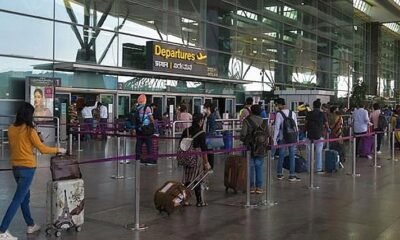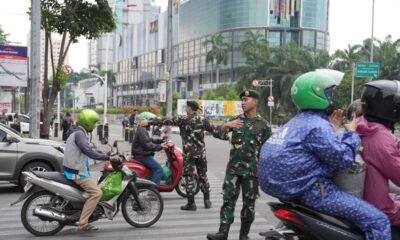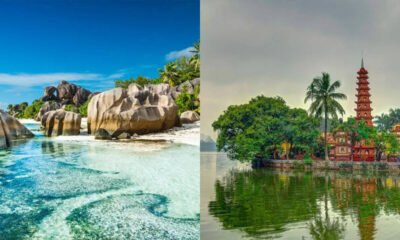Travel Guides & Articles
Northern Thailand, Laos, Vietnam, and Cambodia Welcome Tourists Again as Travel Reopens After Floods: Know All The Latest Updates

Published on
August 9, 2025 |
In the wake of recent floods that affected several Southeast Asian countries, including Thailand, Laos, Vietnam, and Cambodia, tourism is slowly returning to normal. These countries have faced significant disruptions due to severe flooding, which caused damage to infrastructure, attractions, and local communities. However, as recovery efforts continue, many of these destinations are reopening to tourists, welcoming visitors to explore their unique offerings once again.
For Northern Thailand, the situation has significantly improved. Tourist destinations in Chiang Rai, Phayao, Phrae, Lampang, Lamphun, Mae Hong Son, and Uttaradit are once again accessible to travelers, with air, rail, and road travel back to normal. While most of these regions have recovered, some specific locations remain temporarily closed due to the damage caused by the floods. The Phu Chi Fa National Park and Mae Fah Luang University Botanical Garden in Chiang Rai, for example, are expected to remain closed until the end of August.
Despite these temporary setbacks, many popular destinations in Nan Province, including the cultural and scenic attractions, have resumed normal operations, providing tourists with a variety of experiences. Nan’s recovery is a testament to the resilience of local communities and their ability to reopen and offer travelers the full breadth of the region’s natural and cultural beauty.
Recovering and Reopening: A Closer Look at Northern Thailand’s Recovered Destinations
Despite some closures in certain areas, the recovery efforts in Northern Thailand have been impressive. The tourism infrastructure in Nan Province, in particular, has largely remained intact, with most districts welcoming visitors again. The city of Mueang Nan and surrounding areas like Pua, Na Noi, Na Muen, and Santi Suk are fully open for tourists, with attractions such as Doi Phu Kha National Park, scenic routes along highways 3, 1256, and 1517, and cultural sites like Wat Phra That Chae Haeng and Bo Kluea Rock Salt Well back in business.
In addition to cultural sites, nature lovers can visit Doi Samer Dao, Khun Sathan National Park, Si Nan National Park, and Sao Din Na Noi to enjoy the picturesque landscapes that define this region. The Tai Lue community also continues to offer immersive cultural experiences, such as visits to Cocoa Valley.
The accommodations sector in Nan has also returned to normal. Hotels, resorts, and homestays such as Nan Truang Jai, Nan Boutique Resort, DM Hotel and Café, Hop Inn Nan, Utopai Resort in Pua, Kiwsakad in Na Muen, and Ban Ikikawa in Bo Kluea have all reopened, offering travelers a full experience of Nan’s hospitality. Additionally, popular cafés and dining spots like Voila! Nirvanan in Mueang Nan and Sapan Unseen Café in outlying districts are also welcoming visitors, ensuring that the vibrant culinary culture of the region continues to thrive.
Flood Recovery in Laos, Vietnam, and Cambodia
The floods in Laos, Vietnam, and Cambodia caused similar disruptions to local tourism, affecting both popular tourist sites and infrastructure. However, these countries are now slowly recovering, with various tourist destinations reopening and welcoming visitors again.
- Laos: Areas in Luang Prabang, Vientiane, and Vang Vien have reopened, allowing travelers to once again explore the stunning natural beauty and UNESCO World Heritage sites. Some of the region’s iconic destinations, such as the Kuang Si Falls and The Plain of Jars, were briefly affected but are now open for tourism after being repaired and restored.
- Vietnam: The central region, including Hoi An and Da Nang, faced heavy flooding, but these cities have returned to normal. The famous Ha Long Bay and Phong Nha-Kẻ Bàng National Park are also welcoming visitors, offering opportunities for outdoor activities like kayaking, hiking, and exploring caves.
- Cambodia: Siem Reap and Phnom Penh, key destinations for cultural tourism, are back to normal, with the Angkor Archaeological Park being one of the first sites to resume operations after the floods. Other cultural heritage sites, such as Tonle Sap Lake, have reopened, and local businesses are ready to offer their hospitality to visitors once again.
These countries are embracing recovery as a key opportunity to enhance their tourism sectors. With infrastructure improvements, clearer recovery plans, and a focus on sustainable tourism practices, Laos, Vietnam, and Cambodia are well on their way to revitalizing their tourism industries and creating memorable experiences for travelers.
Impact of Flood Recovery on Regional Tourism
While Northern Thailand, Laos, Vietnam, and Cambodia are still in various stages of recovery, the process of rebuilding and reopening has presented significant challenges and opportunities. These regions are demonstrating resilience by not only restoring their popular tourist sites but also improving their infrastructure to accommodate future tourism growth.
For Northern Thailand, recovery efforts are focused on rebuilding damaged infrastructure and ensuring that flood-affected areas are restored to their previous condition. The introduction of new services, such as improved transportation and enhanced tourist facilities, helps to maintain a positive tourism experience despite the setbacks. As local businesses in Nan, Chiang Rai, and other provinces recover, they are actively participating in tourism promotion campaigns to rebuild visitor confidence.
For Laos, Vietnam, and Cambodia, recovery has meant addressing damage to tourism facilities while also positioning their regions as ideal destinations for sustainable and responsible travel. Many regions are focusing on eco-friendly practices, such as promoting community-based tourism and encouraging low-impact outdoor activities.
Rebuilding and Promoting Sustainable Tourism
As tourism resumes in these regions, there is an increasing focus on sustainable tourism. Governments and tourism authorities are promoting eco-friendly and responsible travel to ensure the long-term success of the industry. This includes encouraging travelers to respect local cultures and environments, particularly in regions like Nan, Luang Prabang, and Ha Long Bay, which have faced environmental challenges due to flooding.
In addition, the importance of community-based tourism is becoming more pronounced. In Nan Province, for example, travelers can visit the Tai Lue community to experience authentic cultural exchanges while contributing to the local economy. Similarly, Vietnam and Cambodia are promoting local heritage sites that emphasize sustainable tourism, where both visitors and local communities benefit from the tourism trade.
Conclusion: A New Beginning for Tourism in Southeast Asia
The reopening of Northern Thailand and other Southeast Asian destinations affected by floods signifies not only a return to normalcy but also an opportunity for reinvention. With improved infrastructure, new sustainable tourism initiatives, and an unwavering commitment to recovery, these regions are positioning themselves for a bright future in the global tourism market.
For travelers, this is an exciting time to explore regions that have faced challenges but emerged stronger. Northern Thailand, Laos, Vietnam, and Cambodia offer unique opportunities for eco-tourism, cultural exploration, and outdoor adventure, all while contributing to the rebuilding process and supporting local economies. As the region recovers, it promises to provide a rich, responsible, and memorable travel experience.
Southeast Asia, with its diverse cultural heritage and natural beauty, continues to be a prime destination for travelers seeking new experiences. The recovery efforts demonstrate the region’s resilience, creativity, and dedication to providing unforgettable travel experiences, even in the face of adversity.
Travel Guides & Articles
Taliban minister planned India visit; Pak-led UN panel rejects travel ban waiver
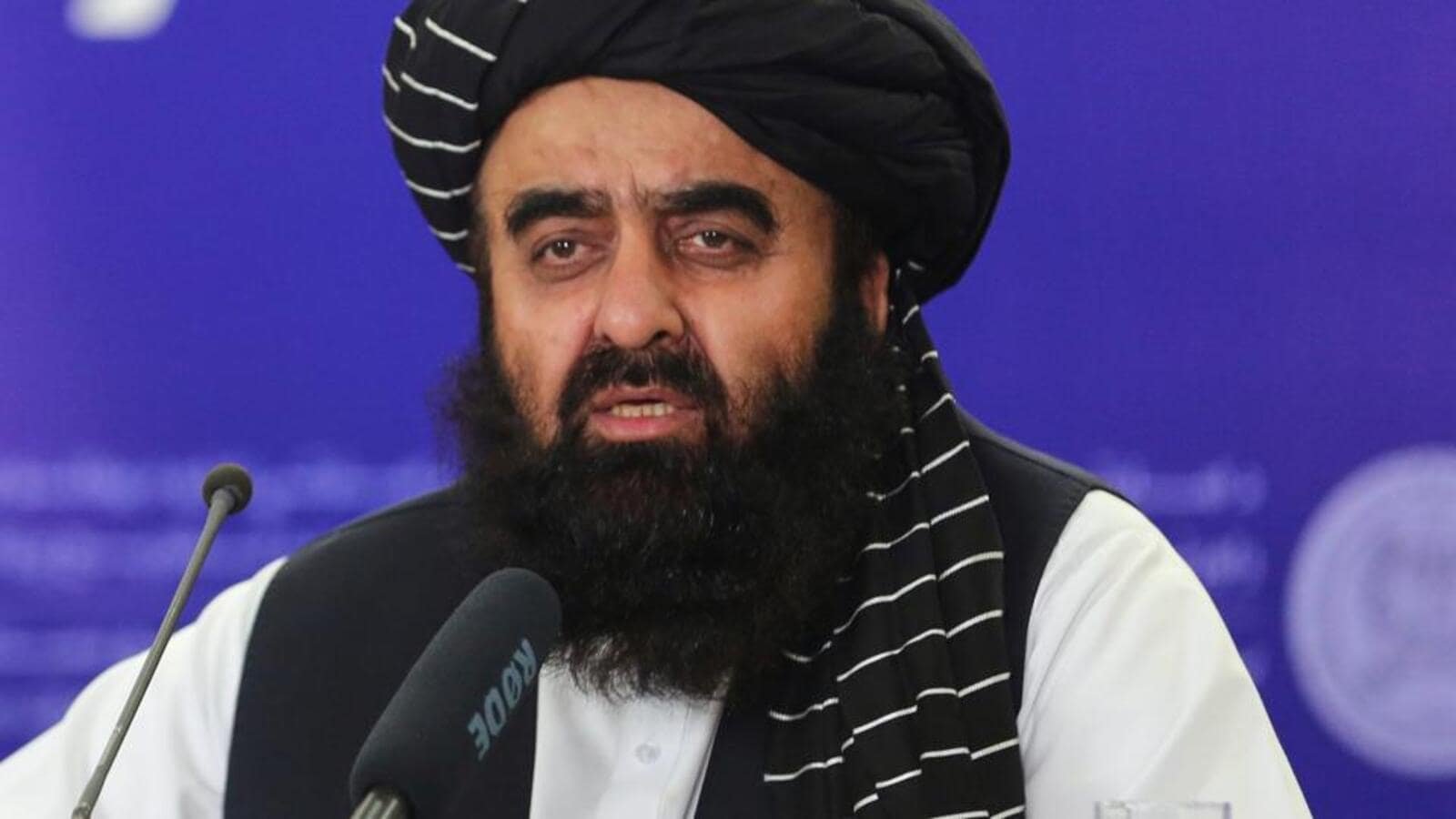
NEW DELHI: Taliban foreign minister Amir Khan Muttaqi called off a planned visit to India this month after failing to secure a waiver to a travel ban imposed under UN Security Council sanctions, people familiar with the matter said.
If the visit had gone ahead, Muttaqi would have been the first minister from the Taliban setup in Kabul to travel to India since the group seized power in Afghanistan after the collapse of the Ashraf Ghani government in August 2021. All Taliban leaders sanctioned by the UN Security Council have to secure a waiver for foreign travel.
Pakistan currently heads the 1988 sanctions committee of the UN Security Council that oversees the implementation of the travel ban, an assets freeze, and an arms embargo related to sanctioned Taliban leaders, and the people cited above said on condition of anonymity that Islamabad is believed to have been behind the move to deny Muttaqi a waiver.
Also Read: Trump says India, Russia ‘lost’ to ‘darkest China’. New Delhi says no comments
The 1988 sanctions committee includes all 15 members of the Security Council, and a waiver can be blocked if even one member objects to it. Muttaqi’s planned visit to Pakistan last month was called off after the US reportedly objected to a waiver.
When external affairs ministry spokesperson Randhir Jaiswal was asked at a weekly media briefing about reports of Muttaqi’s planned visit to India, he replied: “As you are aware, we have longstanding ties with the people of Afghanistan. India continues to support the aspirations and developmental needs of the Afghan people.
“We continue to have engagements with Afghan authorities. If there is an update on this account, we will share it with you.”
The people said a waiver for Muttaqi was sought from the 1988 sanctions committee but it wasn’t granted. The planned visit to India was being seen as a follow-up to a phone call between Muttaqi and external affairs minister S Jaishankar in May – the first such interaction between the two sides.
Also Read: India will ‘undoubtedly’ keep buying Russian oil, says Nirmala Sitharaman
The phone conversation also built on a meeting between Muttaqi and foreign secretary Vikram Misri in Dubai in January and came against the backdrop of tensions between India and Pakistan. The Taliban had also condemned the Pahalgam terror attack in April.
India has quietly built up its contacts with the Taliban leadership in recent years, mainly to protect regional interests at a time when China has sought to expand its footprint in Afghanistan, and Muttaqi and Jaishankar had spoken on the phone again on September 1 after New Delhi dispatched relief materials to help the victims of a devastating earthquake that struck the Afghan province of Kunar.
The people said that Muttaqi’s visit had only been called off, and it is expected to go ahead in the coming months once the issue of the waiver on the travel ban is addressed.
Travel Guides & Articles
Opportunities and Challenges for Travel Agents in India Post-GST Reforms, ETHospitalityWorld

The recent GST reforms announced at the 56th GST Council meeting are set to reshape the travel and tourism industry in India, with travel agents standing at the center of both opportunities and challenges.
For hotel accommodation priced up to Rs 7,500 per day, the GST rate has been reduced from 12 percent with input tax credit (ITC) to 5 percent without ITC. While this move makes travel more affordable for consumers, it poses challenges for travel agents who lose ITC benefits, potentially compressing margins.
Non-economy class air travel has seen its GST rate increased from 12 percent with ITC to 18 percent with ITC. This change will result in higher fares for business travelers, yet travel agencies serving corporate clients can still claim full ITC, ensuring better cash flow management.
One of the most significant developments is the amendment of Section 13(8)(b) of the IGST Act, which now allows services provided by travel agents and tour operators to foreign clients to qualify as exports. This recognition not only enables agencies to avail zero-rated benefits under GST, including refunds of input tax credit, but also strengthens their ability to compete globally.
The motor vehicle transport sector has also undergone changes. The GST rate remains at 5% without ITC, but for those opting for full ITC, the rate has risen from 12 to 18 percent. This provides flexibility but also calls for agencies to carefully evaluate their business models.
Commenting on the reforms, Jyoti Mayal, chairperson of the Tourism and Hospitality Skill Council, said: “The latest GST reforms bring both relief and responsibility for travel agents. On one hand, reduced hotel tariffs will stimulate demand in the domestic tourism segment. On the other, the removal of ITC in this category will require agents to realign their pricing strategies. Most importantly, the recognition of intermediary services as exports is a game-changer, unlocking opportunities for Indian travel businesses to expand their global footprint while enjoying the benefits of zero-rated taxation. luxury travel is as important and needs to be promoted more as the returns are higher spends are higher it is exclusive travel and india needs to focus in the same for inbound and be more competitive than the neighbouring countries”As the sector adapts to these changes, the emphasis will be on balancing consumer affordability with sustainable business models, ensuring that Indian travel agents remain competitive both domestically and internationally.
Travel Guides & Articles
US Tourist Visa Rejection Of Indian Family Goes Viral; User Wrote, “No Questions Were Asked About Our Jobs”
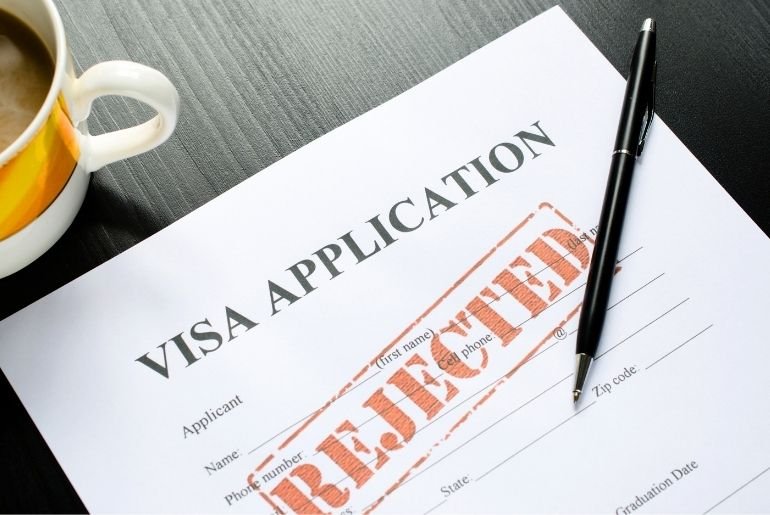
While applying for an international visa, certain factors such as fluency in English are often believed to play an important role. Recently, a Reddit post about a US tourist visa rejection went viral, sparking a debate online. The discussion mainly revolved around whether English fluency and having relatives in America actually influence visa approvals. Scroll down to know more.
US Tourist Visa Rejection
B2 Visa Delhi: Rejected, 214b
byu/Fun-Mind8782 inusvisascheduling
A Reddit user (@Fun-Mind8782) took this account to highlight an important matter. He shared that the US Consulate in New Delhi had denied his and his family’s B2 visa applications. The 36-year-old man, who works as the operations head of an IT company, said he applied for a US tourist visa together with his parents, who are both 70 years old.
The family was planning to travel to the US and had prepared for it beforehand. They had planned a two-week vacation around Christmas, with stops in New York, Los Angeles, and San Francisco. To avoid last-minute problems, they had already booked hotels and created an itinerary.
Talking about their US visa rejection the the user also mentioned his savings, that is ₹20 lakh in bank deposits and stocks. His parents also had savings of over ₹30 lakh. The post also mentioned that the family had previously travelled to many international locations like the UK, France, Switzerland, Dubai, and Singapore. According to the Redittor, he had all the necessary documents required for the visa approval.
Also Read: New Indo-German Pact Eases Student Travel With Gratis Visas; All You Need To Know
Why Was The Visa Rejected?
During the visa process, the officer asked the applicant about the places they were planning to visit, to which the Reddit user gave a fluent answer. Next, the officer asked the applicant’s mother through a translator where they wanted to go in the US. She repeated the names of the cities as well. When asked if they had any relatives in the US, she mentioned a grand-niece but clarified that they would not visit her.
The officer pointed out that the Redditor had said that his parents didn’t speak English, yet the mother spoke reasonably well. The applicant explained she was not fluent but could manage a few words. Lastly, the translator asked about trip sponsorship, and the applicant said they would fund the trip themselves, citing stable jobs, savings, and income from stocks. The user mentioned that the officer didn’t ask any questions related to jobs or previous travel and rejected their visa application.
The visa rejection has stirred a debate online, with many users trying to understand the grounds for the rejection. What is your thoughts on this? Tell us in the comment section!
Also Read: Giorgio Armani Passes Away At 91: Did You Know He Was Awarded The UAE Golden Visa?
Cover Image Courtesy: Canva Pro/maybefals (Representative Image)
First Published: September 05, 2025 7:30 PM
-

 Business1 week ago
Business1 week agoThe Guardian view on Trump and the Fed: independence is no substitute for accountability | Editorial
-
Tools & Platforms3 weeks ago
Building Trust in Military AI Starts with Opening the Black Box – War on the Rocks
-

 Ethics & Policy1 month ago
Ethics & Policy1 month agoSDAIA Supports Saudi Arabia’s Leadership in Shaping Global AI Ethics, Policy, and Research – وكالة الأنباء السعودية
-

 Events & Conferences4 months ago
Events & Conferences4 months agoJourney to 1000 models: Scaling Instagram’s recommendation system
-

 Jobs & Careers2 months ago
Jobs & Careers2 months agoMumbai-based Perplexity Alternative Has 60k+ Users Without Funding
-

 Education2 months ago
Education2 months agoVEX Robotics launches AI-powered classroom robotics system
-

 Funding & Business2 months ago
Funding & Business2 months agoKayak and Expedia race to build AI travel agents that turn social posts into itineraries
-

 Podcasts & Talks2 months ago
Podcasts & Talks2 months agoHappy 4th of July! 🎆 Made with Veo 3 in Gemini
-

 Podcasts & Talks2 months ago
Podcasts & Talks2 months agoOpenAI 🤝 @teamganassi
-

 Education2 months ago
Education2 months agoMacron says UK and France have duty to tackle illegal migration ‘with humanity, solidarity and firmness’ – UK politics live | Politics








